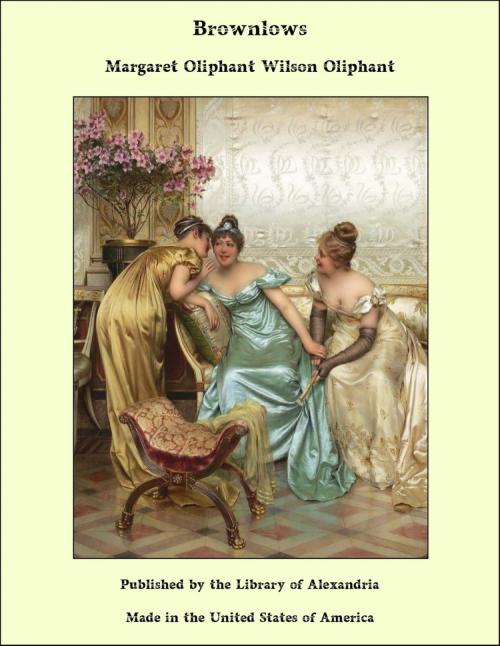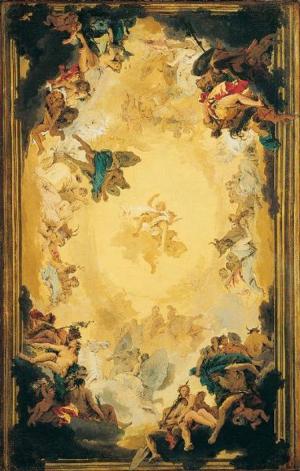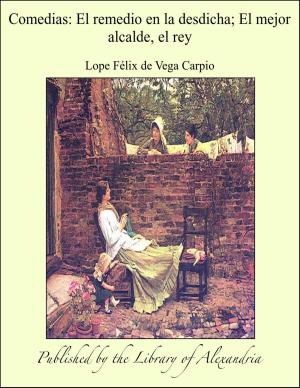| Author: | Margaret Oliphant Wilson Oliphant | ISBN: | 9781465616029 |
| Publisher: | Library of Alexandria | Publication: | March 8, 2015 |
| Imprint: | Language: | English |
| Author: | Margaret Oliphant Wilson Oliphant |
| ISBN: | 9781465616029 |
| Publisher: | Library of Alexandria |
| Publication: | March 8, 2015 |
| Imprint: | |
| Language: | English |
Every body in the neighborhood was perfectly aware what was the origin of John Brownlow's fortune. There was no possibility of any mistake about it. When people are very well known and respectable, and inspire their neighbors with a hearty interest, some little penalty must be paid for that pleasant state of affairs. It is only when nobody cares for you, when you are of no importance to the world in general, that you can shroud your concerns in mystery; but the Brownlows were very well known, much respected, and quite unable to hide themselves in a corner. In all Dartfordshire there was no family better known; not that they were county people, or had any pretensions to high connection, but then there was not one family in the county of whom John Brownlow did not know more than they knew themselves, and in his hands, and in the hands of his fathers before him, had reposed the papers and affairs of all the squires about, titled or otherwise, for more years than could be counted. It was clever of the Brownlows to have had so much business in their hands and yet not to be rich; but virtue, when it is exceptional, is perhaps always a little extreme, and so it is probable that an honest lawyer is honester than most honest men who have no particular temptation. They were not rich, and yet, of course, they were far from being poor. They had the kind of substantial old brick house, standing close up to the pavement in the best end of the High Street of Masterton, which would be described as a mansion in an auctioneer's advertisement. It was very red and infinitely clean, and had a multitude of windows all blinking in the sun, and lighting up into impromptu illuminations every winter afternoon, when that blazing red luminary went down, not over the river and the open country, as he ought to have done, but into the rectory garden, which happened to lie in his way as he halted along toward the west. The Brownlows for generations back had lived very comfortably in this red house. It had a great, rich, luxuriant, warm garden behind, with all sorts of comforts attached to it, and the rooms were handsome and old-fashioned, as became a house that had served generations; and once upon a time many good dinners, and much good wine, and the most beautiful stores of fine linen, and crystal, and silver were in the house, for comfort, and not for show. All this was very well, and John Brownlow was born to the possession of it; but there can be no doubt that the house in the High Street was very different from the house he now inhabited and the establishment he kept up in the country. Even the house in the High Street had been more burdened than was usual in the family when it came to his turn to be its master. Arthur, the younger brother, who was never good for much, had just had his debts paid for the second time before his father died. It was not considered by many people as quite fair to John, though some did say that it was he above all who urged the step upon old Mr. Brownlow. Persons who professed to know, even asserted that the elder son, in his generosity, had quite a struggle with his father, and that his argument was always "for my mother's sake." If this, was true, it was all the more generous of him, because his mother was well known to have thought nothing of John in comparison with the handsome Arthur, whom she spoiled as long as she lived. Anyhow, the result was that John inherited the house and the business, the furniture and old crystal and silver, and a very comfortable income, but nothing that could be called a fortune, or that would in any way have justified him in launching out into a more expensive description of life.
Every body in the neighborhood was perfectly aware what was the origin of John Brownlow's fortune. There was no possibility of any mistake about it. When people are very well known and respectable, and inspire their neighbors with a hearty interest, some little penalty must be paid for that pleasant state of affairs. It is only when nobody cares for you, when you are of no importance to the world in general, that you can shroud your concerns in mystery; but the Brownlows were very well known, much respected, and quite unable to hide themselves in a corner. In all Dartfordshire there was no family better known; not that they were county people, or had any pretensions to high connection, but then there was not one family in the county of whom John Brownlow did not know more than they knew themselves, and in his hands, and in the hands of his fathers before him, had reposed the papers and affairs of all the squires about, titled or otherwise, for more years than could be counted. It was clever of the Brownlows to have had so much business in their hands and yet not to be rich; but virtue, when it is exceptional, is perhaps always a little extreme, and so it is probable that an honest lawyer is honester than most honest men who have no particular temptation. They were not rich, and yet, of course, they were far from being poor. They had the kind of substantial old brick house, standing close up to the pavement in the best end of the High Street of Masterton, which would be described as a mansion in an auctioneer's advertisement. It was very red and infinitely clean, and had a multitude of windows all blinking in the sun, and lighting up into impromptu illuminations every winter afternoon, when that blazing red luminary went down, not over the river and the open country, as he ought to have done, but into the rectory garden, which happened to lie in his way as he halted along toward the west. The Brownlows for generations back had lived very comfortably in this red house. It had a great, rich, luxuriant, warm garden behind, with all sorts of comforts attached to it, and the rooms were handsome and old-fashioned, as became a house that had served generations; and once upon a time many good dinners, and much good wine, and the most beautiful stores of fine linen, and crystal, and silver were in the house, for comfort, and not for show. All this was very well, and John Brownlow was born to the possession of it; but there can be no doubt that the house in the High Street was very different from the house he now inhabited and the establishment he kept up in the country. Even the house in the High Street had been more burdened than was usual in the family when it came to his turn to be its master. Arthur, the younger brother, who was never good for much, had just had his debts paid for the second time before his father died. It was not considered by many people as quite fair to John, though some did say that it was he above all who urged the step upon old Mr. Brownlow. Persons who professed to know, even asserted that the elder son, in his generosity, had quite a struggle with his father, and that his argument was always "for my mother's sake." If this, was true, it was all the more generous of him, because his mother was well known to have thought nothing of John in comparison with the handsome Arthur, whom she spoiled as long as she lived. Anyhow, the result was that John inherited the house and the business, the furniture and old crystal and silver, and a very comfortable income, but nothing that could be called a fortune, or that would in any way have justified him in launching out into a more expensive description of life.















